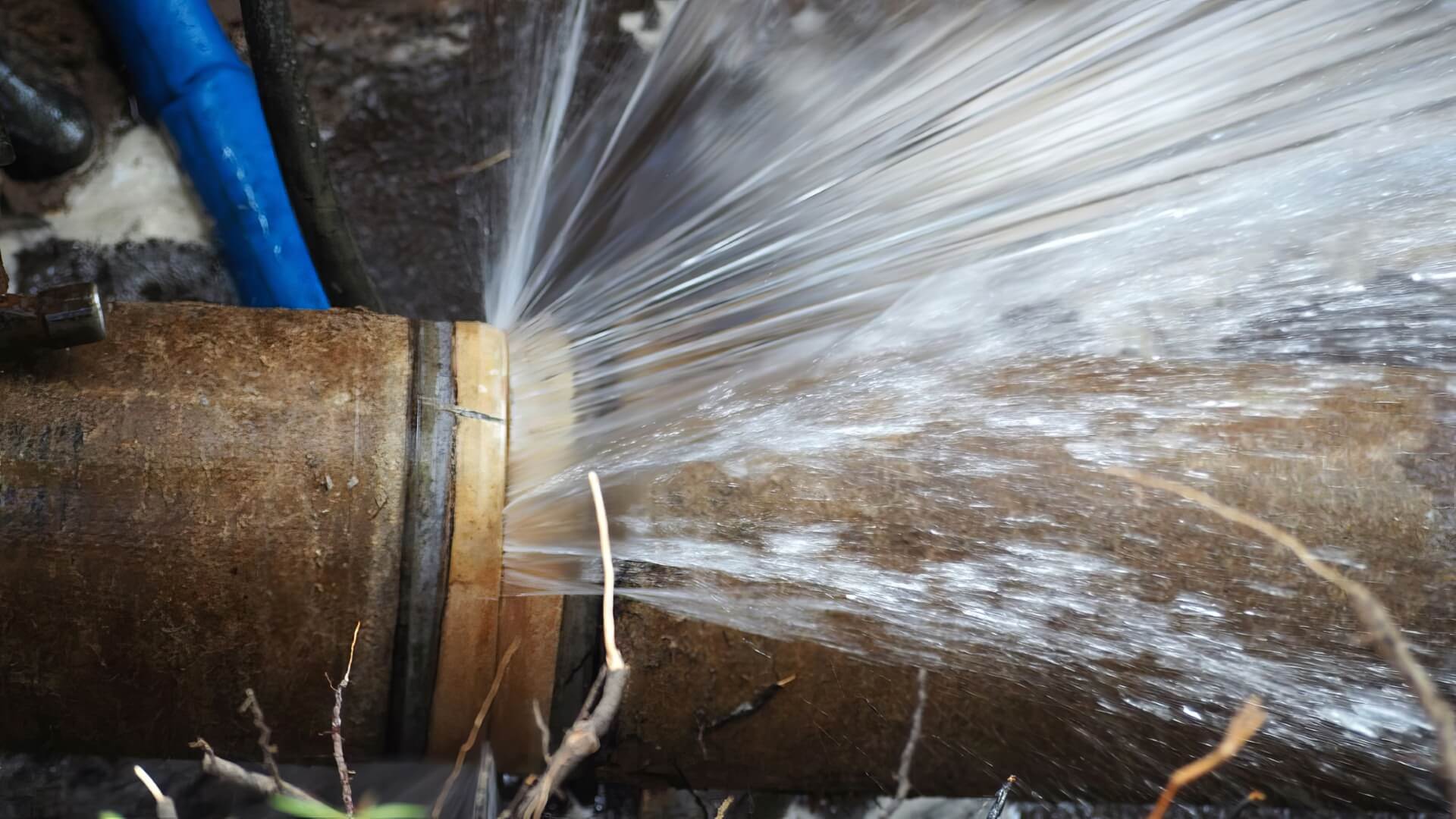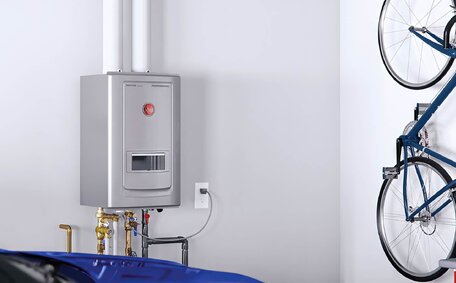What is sediment and how does it get into my hot water system?
Sediment primarily consists of mineral deposits such as calcium carbonate and tends to accumulate over time within hot water systems. Originating from the incoming water supply, it eventually collects in your water tank and pipes.
In Quakers Hill, Sydney, homes typically receive 'hard water’, a term for water with high mineral content, that continuously passes through household pipes and affects the entire water system. Heating the water in your tank causes these minerals to precipitate, forming sediment that subsequently requires attention to prevent maintenance problems.
Sediment enters the system through the inlet connected to your cold water valve. As water enters the tank, small amounts of sediment settle at the bottom or coat the heating element. Without removal, this sediment layer gradually results in buildup that impacts the water heater tank.
Regular flushing is essential to minimize sediment accumulation inside the tank and prevent significant buildup. Unchecked, excessive sediment at the tank’s bottom can lead to loss of efficiency, overheating, premature failure, and corrosion.
Common causes and sources of sediment build-up
Sediment buildup in hot water systems has several common causes that should be regularly checked:
- It’s important to be aware of hard water’s impact; its high mineral content, especially calcium and magnesium, leads to sediment accumulation when these minerals precipitate over time.
- Corrosion - Corrosion of pipes, fittings, and the heater tank itself releases particles, contributing to sediment buildup.
- Infrequent flushing - Not scheduling periodic flushing of your water heater can allow sediment your tank to build up at the bottom.
- Water pressure - High water pressure can stir up sediment, causing it to circulate throughout the system rather than settling at the tank’s bottom.
Hard water, being a catalyst for sediment build in Quakers Hill, Sydney, presents a challenge as sediment can also influence the consideration of your home warranty. Naturally, your pipes and our water supply contain dissolved minerals which, when heated, may contribute to too much sediment in hot water systems. Even plastic piping can experience minor corrosion over time, contributing to sediment in the hot water system.
An annual system flush is crucial to address sediment issues in your hot water system. Unchecked sediment accumulation can lead to significant efficiency and performance issues over time.
Signs that sediment is accumulating in your system
Fluctuating water temperature
Fluctuating water temperatures can indicate sediment buildup, which affects the unit’s ability to consistently heat water. As sediment envelops the tank’s heating elements, it interferes with heat transfer and makes maintaining a steady temperature quite challenging.
Sudden bursts of scalding water may occur when heating elements overcompensate due to sediment, a classic sign of its impact. If sediment obstructs your heater’s elements, contact us, as it may result in unexpectedly having no hot water. These fluctuations indicate scale deposits from sediment buildup in your water heater must be cleared to restore normal operation.
Reduced water flow and pressure
Accumulating sediment can obstruct water flow and progressively decrease pressure. As heater sediment worsens inside pipes and fittings, you’ll notice diminished shower pressure, reduced hot water tap flow and delayed water access.
Pressure loss occurs when sediment further constricts narrow spaces within your unit during heating; prompt servicing can resolve these issues. A considerable drop in water flow and pressure can signify extensive sediment-related blockages.
Noisy water heater operation
From rumbling hot spots to high-pitched steaming sounds, sediment problems often emanate from inside your abnormally noisy water heater. Deposits shifting and rattling within the tank can cause loud noises during the heating process.
These noises are signs that sediment buildup was very significant, and addressing them promptly can be highly recommended, as fragments are breaking off and moving around within the system. By this stage the interior of your hot water heater is likely severely compromised and in need of flushing.
If you spot these sediment warning signs in your hot water tank - temperature instability, low pressure, and noisy operation - give us a call out, reaching out to our Quakers Hill plumbing team, to have it inspected before problems worsen.
Consequences of sediment build-up
Allowing sediment build-up to go unchecked can have serious negative consequences for your hot water service’s performance and longevity.
Loss of efficiency
Sediment buildup can insulate heating elements and tank walls, reducing heat transfer efficiency. Research indicates that as little as 6mm of scale buildup in your water heater tank can lead to a 40% increase in energy consumption.
Excessive sediment can impede your water heater’s ability to maintain water quality and heat efficiently. Consequently, inefficient operation due to sediment can lead to increased energy bills over time.
Damage and corrosion
Excess sediment strains other components and wears out your tp relief valve and heating elements within your unit. The constant overheating causes premature wear and tear. Sediment also retains moisture against steel surfaces, leading to corrosion over time.
Dislodged sediment indicates the extent of accumulation and poses a risk to sensitive control valves, necessitating removal. Sediment can damage your system from the inside, progressively diminishing its integrity.
Risk of failure
Extensive sediment accumulation greatly increases the risk of leaks in your hot water system. It may operate for a while but you could end up with total shutdown due to the overexertion, overheating damage, blocked water flow and component failure.
Prevent issues by having your hot water system inspected and flushed annually. Letting the sediment problem become severe puts your entire system at risk.
How to prevent and remove sediment build-up
Preventing sediment build-up
Several methods, including the use of a heat pump, can help prevent sediment accumulation in your hot water system:
- Install a water softening system - Water softeners extract minerals from water, preventing them from entering your hot water tank and forming scale.
- Use a sediment filter - Inline filters on the cold water inlet capture water heater sediment before it can get into your tank.
- Upgrade to PEX piping - Non-corrosive PEX pipes resist breakdown and don’t contribute debris over time.
Flushing your water heater
An annual flush is vital to clear sediment from the bottom electric water heater before major buildup occurs. Follow these steps:
- Switch off the gas or electric hot water power supply - Make sure the gas supply and the pilot light are off to prevent heater activation during flushing.
- Attach a garden hose - Securely connect a hose to the tank’s drain valve and lead it outdoors, preparing for effective sediment removal.
- Open the drain valve - Carefully open the valve to release pressure and start removing the sediment as it flows out.
- Flush until hot water supply runs clear - Keep flushing until discharged buildup water no longer contains sediment.
- Close drain valve - When water runs clear, close the drain valve.
- Refill system - Turn water and power supply back on to refill the tank.
For professional flushing services, done right, or to inquire about sediment prevention solutions for your home’s hot water system, contact our team at Quakers Hill Plumbing for sewer line services on 1300 349 338 or email [email protected].






